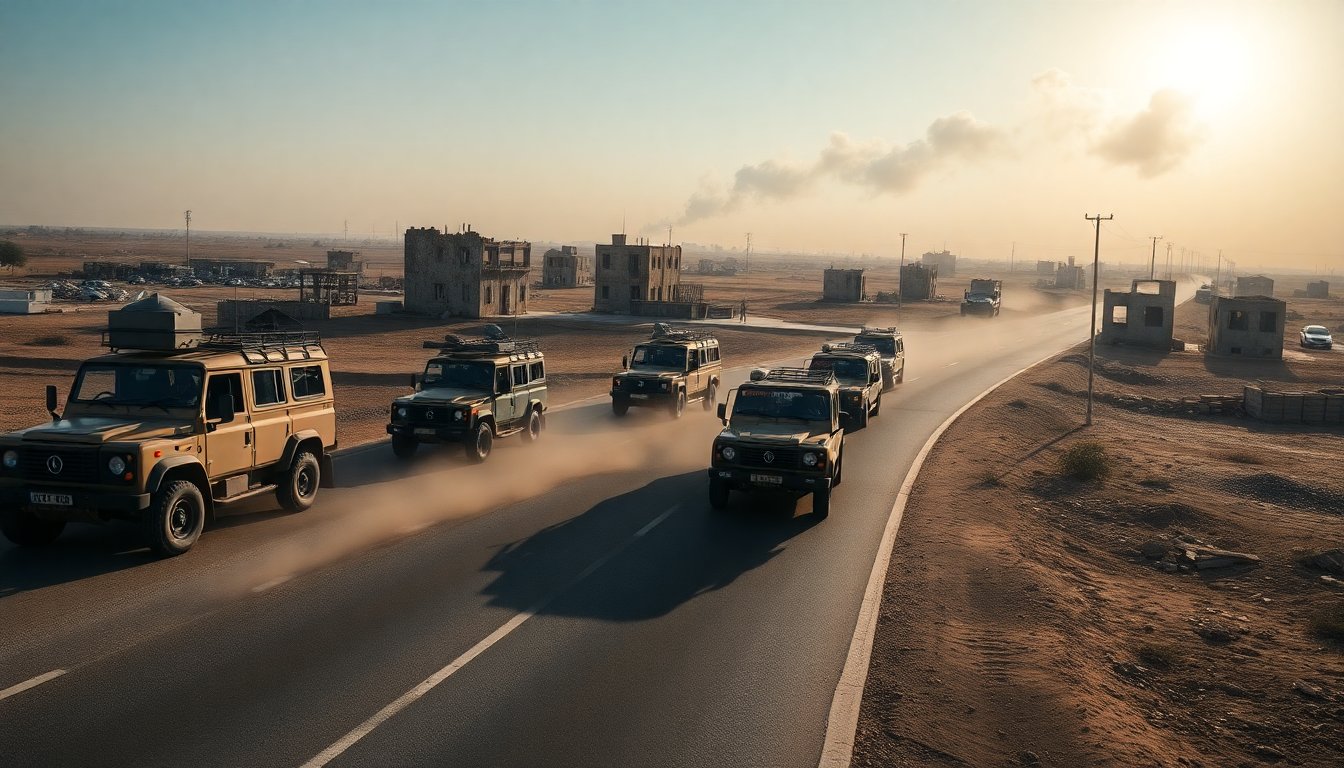Table of Contents
The situation in Darfur has reached a critical juncture. The Rapid Support Forces (RSF) have reportedly seized control of El Fashir, the last significant stronghold of the Sudanese military in the region. This development follows a series of intense clashes that have heightened fears of widespread violence and humanitarian catastrophe. As the RSF fortifies its position, the implications for the local populace and the broader stability of Sudan are becoming increasingly dire.
The RSF’s strategic advance in El Fashir
The Rapid Support Forces (RSF) announced the capture of El Fashir on October 26, 2025. This development includes the RSF’s claim of full control over the 6th Infantry Division of the Sudanese Armed Forces (SAF). According to RSF spokesperson Al-Fateh Qureshi, this achievement is a pivotal moment in the ongoing conflict. He suggested it signifies a significant shift towards establishing a new governmental structure that aims to represent all Sudanese citizens.
Military and humanitarian concerns
El Fashir functions as an administrative center and a vital hub for humanitarian efforts in Darfur. Its strategic position, bordering several states and neighboring countries such as Chad and Libya, amplifies its importance. The control of this city by the Rapid Support Forces (RSF) could empower them to exert dominance over the entire Darfur region, raising concerns about the potential fragmentation of Sudan.
As the RSF strengthens its grip, the humanitarian conditions worsen significantly. Reports indicate that over one million individuals have fled El Fashir since the RSF’s siege began in, leaving approximately 250,000 civilians still trapped within the besieged city. Those who have escaped recount harrowing experiences characterized by violence, looting, and a pervasive atmosphere of fear.
Escalation of violence and civilian suffering
The escalation of hostilities has led to serious accusations against the Rapid Support Forces (RSF) for human rights violations. According to international observers, including the United Nations, there have been multiple documented instances of violence against civilians. These reports have triggered allegations of ethnic cleansing and even genocide. In response, the RSF claims that their operations focus on military targets, arguing that the Sudanese Armed Forces (SAF) have misused civilian facilities, such as hospitals, for military purposes.
The plight of displaced civilians
The disruption of humanitarian aid routes has created a dire situation for those displaced by the conflict. Aid organizations have issued urgent warnings about the potential for a humanitarian disaster. They emphasize the immediate need for assistance for thousands stranded and in desperate need of basic necessities. Humanitarian corridors, essential for delivering aid, are on the brink of collapse, worsening the already critical conditions in North Darfur.
Additionally, reports indicate mass arrests and extrajudicial killings of individuals attempting to flee the violence. Eyewitness accounts reveal that those seeking safety often encounter hostility, making their efforts increasingly perilous.
The future of El Fashir and Sudan
The future of El Fashir is uncertain as the Rapid Support Forces (RSF) continue to assert their dominance. Although the Sudanese military has not officially commented on the situation, local sources indicate that government forces are regrouping in various parts of the city. They are attempting to maintain a foothold amidst the ongoing conflict. The potential for further military engagements raises questions about the resilience of the Sudanese army and the overall stability of the nation.
As the situation develops, fear is palpable among residents, many of whom are awaiting military intervention from the Sudanese army. However, with the RSF’s recent successes, the likelihood of a rapid resolution appears increasingly remote. The unfolding events in El Fashir will undoubtedly have profound implications for the future of Sudan and the civilians caught in the crossfire of this brutal conflict.


